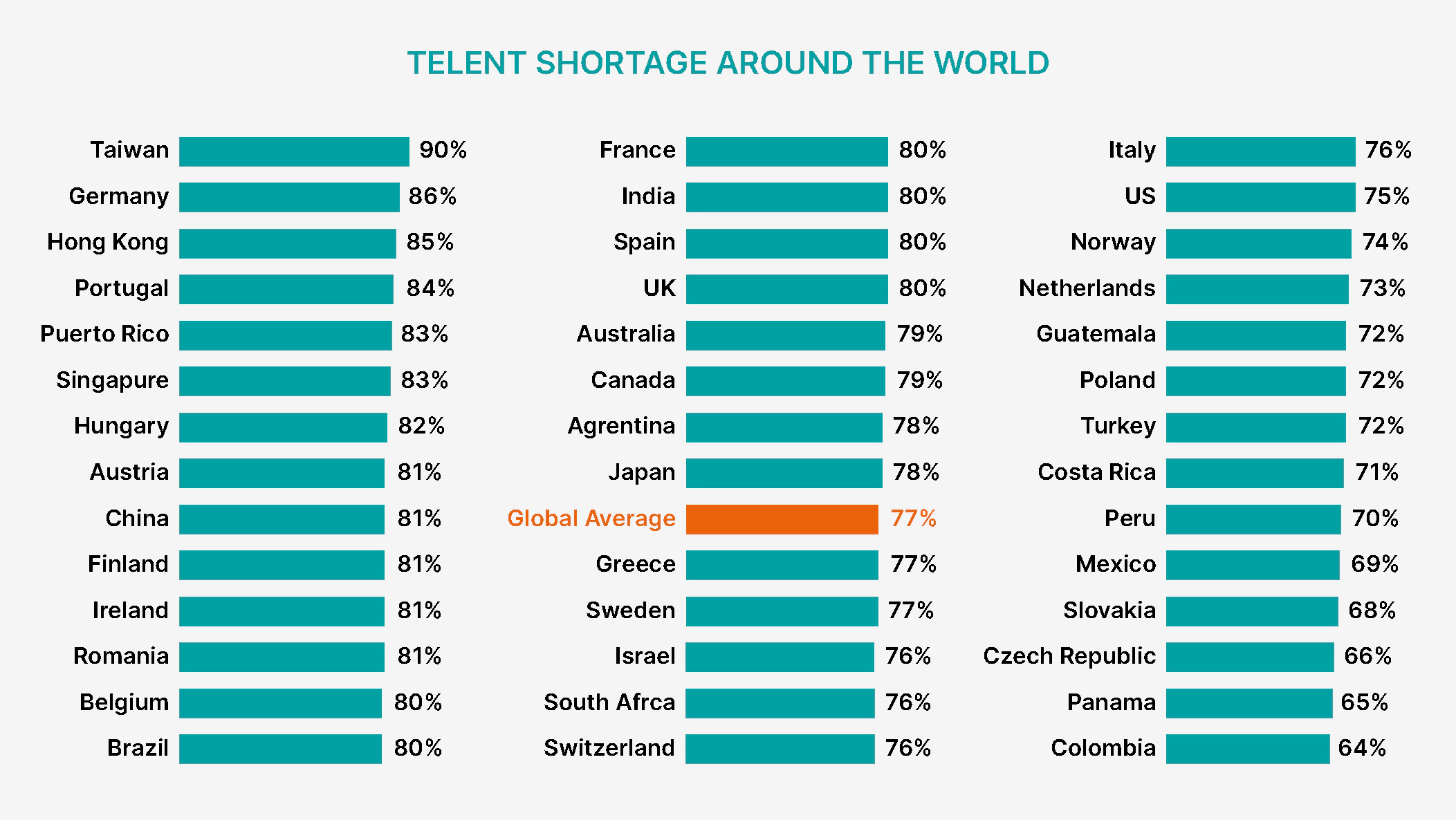
8 most important reasons why companies outsource IT services
At ALAS doo, we understand the importance of technology in today’s fast‑paced business environment. As a provider of outsourcing IT services, we know firsthand the advantages that outsourcing can bring to companies of all sizes and industries.
One of the main goals of outsourcing IT services is obviously to boost efficiency and reduce costs, but there are other underlying benefits to take into account.

1. Enabling focus on key competences
Every company has its main strengths, the fields it specializes in, and is equipped with all the necessary experience, resources, and organization to support them. It is a good practice to focus on them and assign secondary functions to a specialized third party.
Doing business with outside vendors is likely nothing new to you. You probably already outsource in many areas, such as food ordering, cleaning services, yard work, and even teaching your employees the necessary skills at language schools.
Outsourcing IT services, such as development and software quality assurance, to a reliable provider can also be used to streamline processes, solve pain points, and simplify procedures, so you can focus on your key functions. Even tech giants like Google, Facebook, and IBM outsource a part of their IT‑related business operations to dedicated offshore teams.
2. Cost efficiency
Cost efficiency includes reducing costs and increasing revenue. Revenue increases consequently through improved efficiency, but one of the most significant direct advantages of outsourcing IT services is cost savings. Outsourcing helps companies reduce costs by about 15% on average but up to 70%.
Outsourcing allows companies to avoid the high costs associated with hiring and training in‑house IT staff. This includes costs such as HR procedures, benefits, paid holidays, office space, and training employees on how to use the required software. Additionally, outsourcing eliminates the need for companies to purchase and maintain expensive equipment and software.
By outsourcing IT services, companies can allocate their resources towards more pressing business needs, such as dealing with customers, ensuring an adequate supply of products or services to meet current demand, refining their main offerings, and so on.
3. Finding the best talent to fill job positions
Finding contractors is the best way to deal with the skills gap. The latest trends in the hiring field show that filling the position with the right candidate is increasingly getting harder. The mismatch between the skills that employers seek in their employees and the skills that job applicants possess makes it difficult for employers to find appropriately trained workers.

According to the comprehensive ManpowerGroup Talent Shortage survey, 77% of companies have reported quality workforce shortages and difficulty hiring. As their infographic shows, it is a 16‑year high. It is obvious that it is getting harder and harder to hire skilled IT specialists, especially for an affordable price. Outsourcing IT services allows companies to access a pool of specialized experts in various fields of technology, which is their primary field of expertise.
Furthermore, in‑house training of less experienced candidates is expensive and takes a significant amount of time, which can lead to project delays. Unfortunately, it is not uncommon for an in‑house employee, who has just been trained and onboarded, to leave the company for a better position or for any other reason. All the effort and resources invested by then have been in vain, and you have to start the process all over again with a new candidate. With outsourcing to a vendor, you never get these gaps and lost investments, as the vendor is providing you with a service, and if their employee can’t work on the project anymore, an adequate replacement is supplied promptly.
By outsourcing to a reliable vendor, you pay for a high‑quality service without having to worry about pre‑training or finding the right talent. The third party does all the footwork for you at no additional cost. This can be particularly beneficial for companies that do not have a full HR department and don’t want to form one. Outsourcing is also the best solution for businesses that don’t have the resources or need to hire and maintain a full‑time staff of IT specialists.
4. Global Access
Outsourcing IT services can provide companies with access to a global talent pool and scarce skills. While you may not need top‑notch development skills constantly, they are required at certain times. Finding skilled resources may be difficult, expensive, or even impossible to find locally. With outsourcing contracts, you get access to the most skilled professionals in the world.
Incorporating diverse perspectives and cultural backgrounds into your project can also bring fresh ideas and improve its overall quality. This can be particularly valuable for companies looking to expand their operations into new markets.
The question of cultural competence can be raised, of course. Many of the outsourcing companies, including ALAS, have a high level of multicultural competence and possess a positive attitude toward cultural differences, as our clients come from a great number of countries and cultures.
5. Access to the latest trends, methods, and tools
Outsourcing IT services can also provide companies with access to the latest technologies and best practices, which can help them stay competitive in their industry.
You can outsource your development work to very skilled developers who are industry experts in the latest frameworks, design patterns, and programming languages. Similarly, if you outsource your QA process, you are making sure it is following the latest QA trends and using the best-proven tools and methods in the industry.
With the increasing use of cloud‑enabled “as‑a‑service” models and process automation, using the most efficient technologies on the market is crucial to improving cost and quality.
Yesterday, outsourcing was all about cutting costs and reducing back office services. Today, it is about increasing collaboration to integrate services that organizations cannot build fast enough on their own.
With the fast pace of IT innovations, many companies need to upgrade outdated infrastructure and do it fast in order to sustain a competitive advantage. This also needs to be done to ensure compliance with new regulations, improve security, and enhance the user experience.
We, in ALAS, always keep up to date with the newest technologies and best practices, use the best‑proven tools and methods in the industry, and constantly improve our workflows.
6. Improved efficiency
Faster time‑to‑market while maintaining the highest standards is an imperative in most industries. Utilizing the offshore experts’ superior skills, experience, process discipline, and replacement policy for vacations, sick leaves, and sabbaticals, accelerates this critical metric by which technology companies are evaluated.
A good example is outsourcing the whole QA process to a reliable vendor. The quality of the code and the final product is guaranteed to be up to the highest standards. Apart from that, time and money are saved by identifying the issues early on. This allows more time for refining products or staffing up another team that might be behind schedule on an upcoming product release.
A mixture of both onshore and offshore teams can even more rapidly decrease the amount of time needed for a certain product or service to reach the market. Employing offshore outsourcing providers in different time zones allows vendors to work on your project 24/7, reducing overall time‑to‑market. Moreover, the region you decide to outsource to may have different non‑working holidays, enabling the project to be refined even through statutory holidays.
One of the main reasons for outsourcing is the slowing down of the economy when companies have to scale back on investments. This often leads to a decrease in productivity and quality, which in turn hurts their ability to compete. This is especially true if you have to lay off low‑level employees. Their tasks are shifted among existing in‑house employees, which causes high‑position employees’ skills to be wasted and plummets the quality of the high‑priority job. However, outsourcing during a recession is a solution for all of these issues. By shifting a portion of the work that used to be done by employees to outsourcing providers, companies can increase their productivity.
7. Flexibility
Outsourcing IT services provides fast team scaling and quick adaptation to project changes. Whether you want to scale up or down, the vendors can still adjust the team members that you want in a short amount of time.
This can be especially beneficial for companies that experience seasonal fluctuations in demand. For example, a company that experiences a significant increase in demand during the holiday season can outsource additional IT resources to meet the increased demand.
In case of changes in business trajectory, priorities, resources, or objectives, an outsourced team can also quickly adapt to your requirements in terms of technical skills.
8. Keeping the workload optimal and preventing burnout
Assigning certain functions to a third party can actually boost the morale of your in-house team and build a healthy company culture. Maybe this seems counterintuitive, but think about what happens each time an employee takes a sick leave, a sabbatical, or a vacation. Other members of the team have to take on more workload on themselves with their already busy schedules. This inevitably leads to additional stress, low employee morale, and eventually employee burnout and reduced efficiency.

Outsourcing eliminates those times of watering down the core assignments of your in‑house employees, which keeps them more focused, productive, and happy. You are provided with an ongoing service and don’t have to think about how to cover days off.
How ALAS can help you accelerate your business
If you are a small, medium, or large company that wants to gain an edge over the competition, but you’re uncertain about what areas need improvement, we can evaluate your specific circumstances and provide an extensive range of services to help you achieve this goal: customized project management solutions, software developers with the required expertise, manual and automated quality assurance. Contact us to schedule a meeting for a free initial assessment.


